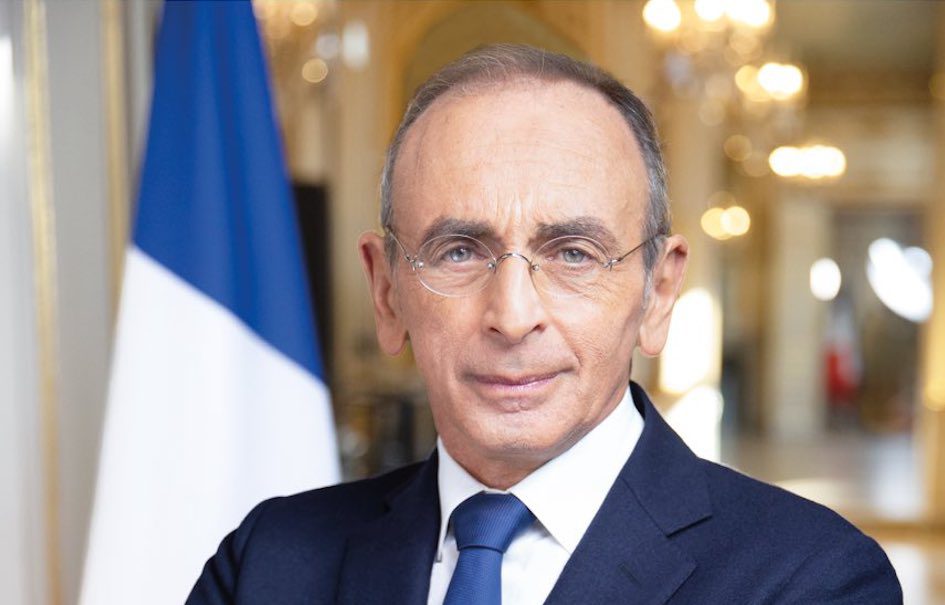
The journalist and polemicist Éric Zemmour has chosen to enter political life as a presidential candidate, having spent many years as the scrupulous media voice for France. His incisive tone and uncompromising analyses have made him a success, both in his books and on his television and radio shows. He has launched a new political party, Reconquête, which has already won over 100,000 members—an unusual feat for a new party in France. His objective is twofold: to defend the identity of the French nation, which is threatened with extinction because of immigration, and to refound the French right, which has been struggling for several decades to find a credible political path forward, both on strategic and ideological levels. He agreed to answer exclusive questions from The European Conservative.
You are correct. In France we prefer the word “Right” to the word “Conservatism.” Like with other terms, it depends what you mean by “conservative.” I believe conservatism can be healthy, but it can also mean stagnation, at least in the French political imagination. I admire French authors that some would qualify as conservatives, like Tocqueville and Chateaubriand, for example.
My party Reconquête (Reconquest) and I want to conserve the French people. Europe is currently being partially Islamicized and uncontrolled immigration is posing many security and cultural problems. We want to conserve Eternal France, our cuisine, our art de vivre, our civilization.

France will maintain good relations with her neighbors, obviously. France is a country that has something to say to the world. My role model is Charles de Gaulle, who always defended a powerful and independent France. We will not only speak with our European neighbors but also with the world. Emmanuel Macron wants to sacrifice France to the EU, he dreams about a European Federal State that will never exist.
I think France mustn’t be afraid to make her voice heard. For too long we have repeatedly gone along with EU chimeras instead of defending our nation. Germany never stopped defending her own interests; when I’m president we will do the same. There are important changes to be made. We must better regulate immigration and stop criticizing Poland and Hungary. Recently, other countries joined those two to protest against Brussels. They are diverse regarding their leaderships and cultures, but in their complaint they agree: Austria, Bulgaria, Cyprus, Denmark, Estonia, Greece, Lithuania, Latvia, Czech Republic, and Slovakia.
You chose the word correctly. To be a radical, etymologically, is to go to the roots of the problem. We are not extremists, but we do want to treat the problems seriously, therefore we must tackle the root causes. My discourse on immigration is similar to George Marchais’ [General Secretary of the French Communist Party during the 80s]. He understood that excessive immigration was used to lower the salaries of French workers, deteriorating their quality of life.
Orban, who I had the pleasure to visit last year, is a very intelligent leader. He understood that we are no longer in the 20th century, and that things have changed. He is leading the battle against woke ideology, as we know it destroys the family, it indoctrinates children and puts in danger our biological reality.

Of course there is! Our cathedrals are perhaps the most visible feature of that European culture. All the Europeans were devastated when they saw that Notre Dame [Notre Dame Cathedral, in Paris] was burning. The great European authors like Pascal, Dante, Goethe, among many others, are consubstantial to European culture.
Europe also means democracy, the people should be sovereign, it shouldn’t be ruled by technocrats or judges that go against its will. I am a partisan of the referendum that allows the people to respond directly to an important question. Many leaders in Europe today fear the referendums. That just means they fear the people. I do not.
A tragedy. A war between brothers. I urge both sides to negotiate as soon as possible and to stop the bloodshed. If we had followed my February 14th proposal, which was an international agreement that would have asserted the stop of NATO’s expansion and, in exchange, Russia would have accepted to respect Ukrainian borders, the war would have been avoided.